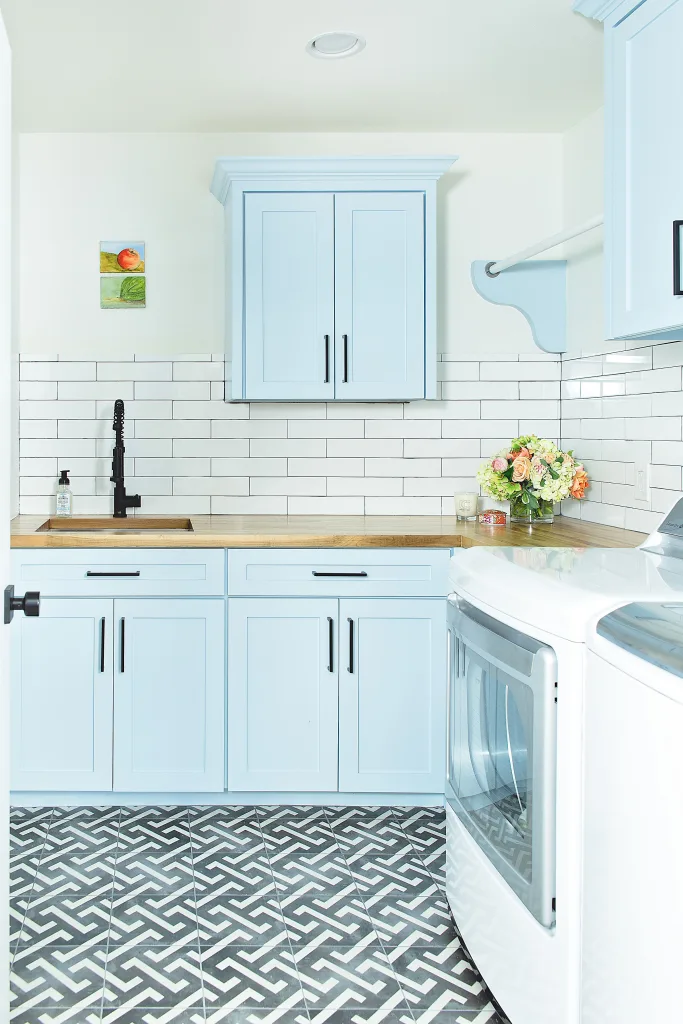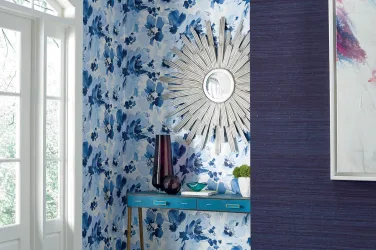
By Kim Armstrong
Whether you prefer vibrant and striking colors or soothing and subtle tones, there are many creative ideas to explore when adding color to your living space. Let’s take a look at some of them.
Walls
Painting the walls of your home is a fantastic way to refresh and transform your living space. Because it covers so much of your room, it is a highly visual and immersive experience. Before you begin, choosing the color scheme that suits your taste and the mood you want to create in each room is essential. Consider factors such as natural light, existing furniture, and the overall ambiance you wish to achieve. Then, look at color and keep an open mind.
You can go in two directions when painting walls. The walls can be what makes the impact, or you can create impact with another feature in your room, such as wallpaper or a colorful fabric, letting the walls be the supporting cast. For example — I recently designed a primary bedroom and chose an earthy plum color for the walls that I pulled from the wallpaper accent of the room. Even though the client didn’t normally gravitate toward this color, she loved it because it created a harmonious effect with the wallpaper she loved.
The art of choosing a color is to keep your room well-balanced and ensure the colors interact and don’t compete. Using a color wheel can help you find the colors that evoke the mood you want to achieve.
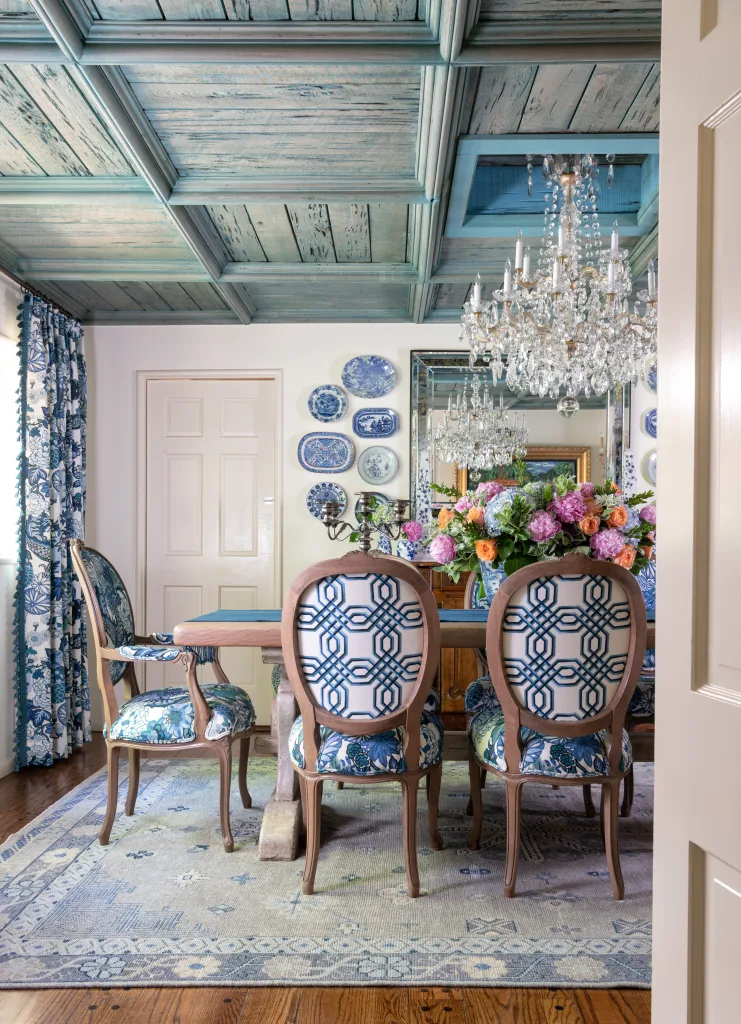
Ceilings
Painted ceilings are an easy and dramatic way to elevate a room. There is something so intriguing about color in an unexpected area. Especially if you have a room that doesn’t have a lot of interesting details, it’s an easy way to update the space. Plus, it is not a big budget item, so you are elevating your space without elevating the cost, and it is easily changed if you tire of the color over time. To decide what color to paint the ceiling, look for an accent color already in the room. This could be an area rug, piece of art, fabric, etc. — something you gravitate towards. Then, choose this color or a complementary one so that it becomes the focal point of the room.
Tip:
When choosing your color, remember that a ceiling naturally casts its own shadow, so the color you choose will appear slightly darker on the ceiling than on the wall. Make sure you paint samples on your ceiling and look at them throughout the day/night to ensure you like the hue at all times of daylight and overhead light.
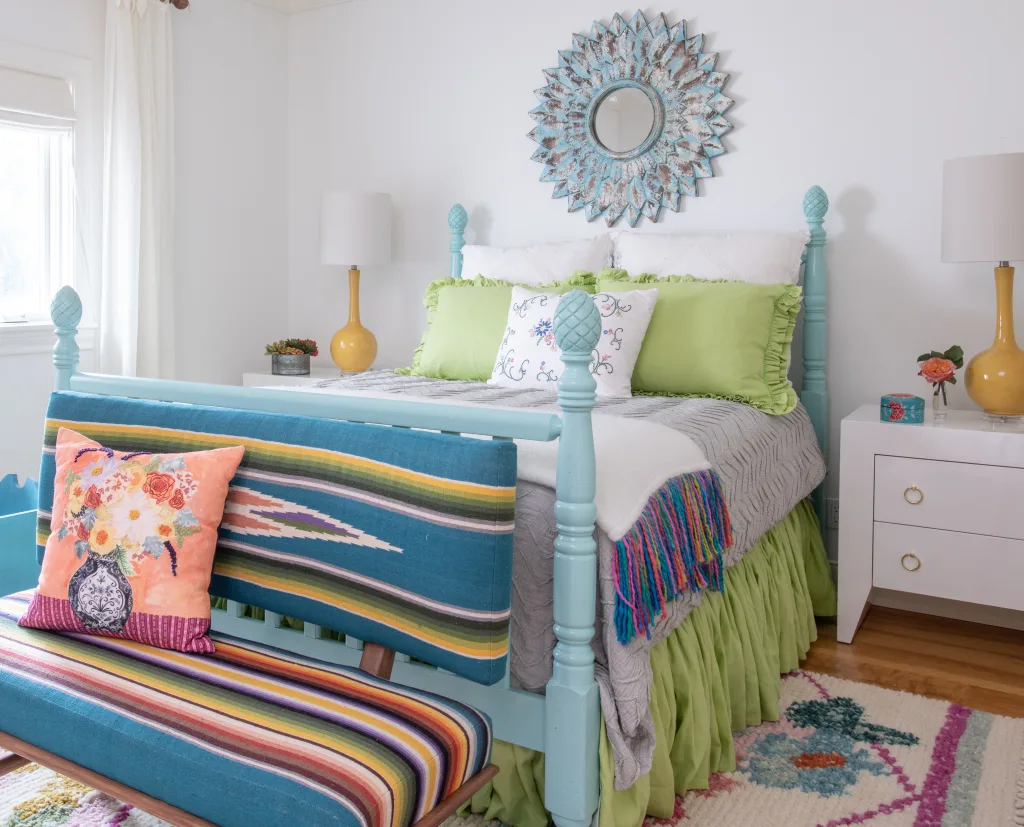
Room Accents & Furniture
If you are hesitant about adding color but want to dip your toe into the color pool, try painting an accent item in your room. This could be the back of a built-in bookshelf or a cabinet, end table, or nightstand.
Painting the back panel of a built-in bookshelf or cabinet can serve two purposes. First, it adds a touch of drama to a smaller area. Second, it creates a grounding effect that visually ties the space together, acting as a backdrop that highlights your displayed items, drawing more attention to treasured pieces.
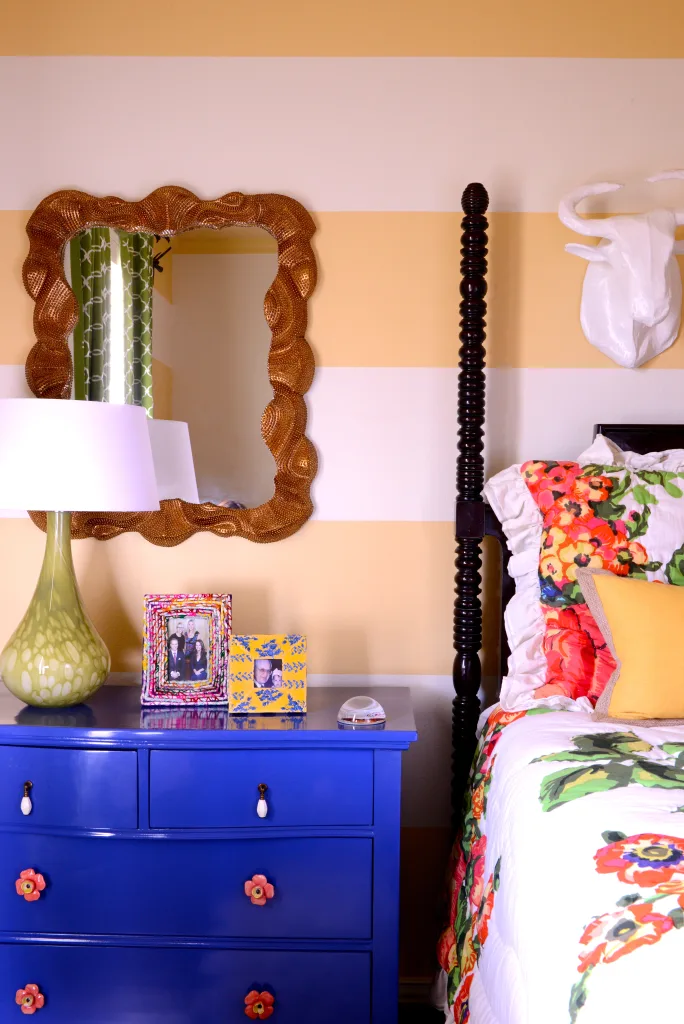
Using paint to add color to a room can also involve painting furniture. If there’s a color you constantly gravitate towards and want to see how it looks in a room, consider incorporating it through furniture. Revitalize an old bed by painting it in a shade that appeals to you. End tables and nightstands are other pieces that are a great way to add that pop of color. Experiment with paint chips until you discover the color that resonates with you and fits the room’s aesthetic.
Cabinets
Painting cabinets offer a significant room transformation without the need to renovate extensively. Painting cabinets also allows you to add color to an open concept living area without having to paint all the walls of the space.
When we first bought our house, it lacked color and was very neutral. Due to the open floor plan,
I was content with the neutral walls, trim, and doors, but I wanted to add color because that’s my love language as a designer. Thus, I opted to paint the kitchen cabinets a cheerful spring green. It complements the accent colors in my living room — orange, purple, and blue but I didn’t have to commit to this color throughout the living, dining, and kitchen area because it was on the cabinets and not the wall. This subtle green infusion brightens the space alongside the neutral walls, countertop, and backsplash. It’s a simple and cost-effective way to refresh the room while ensuring the colors harmonize with other elements in the open-concept space.
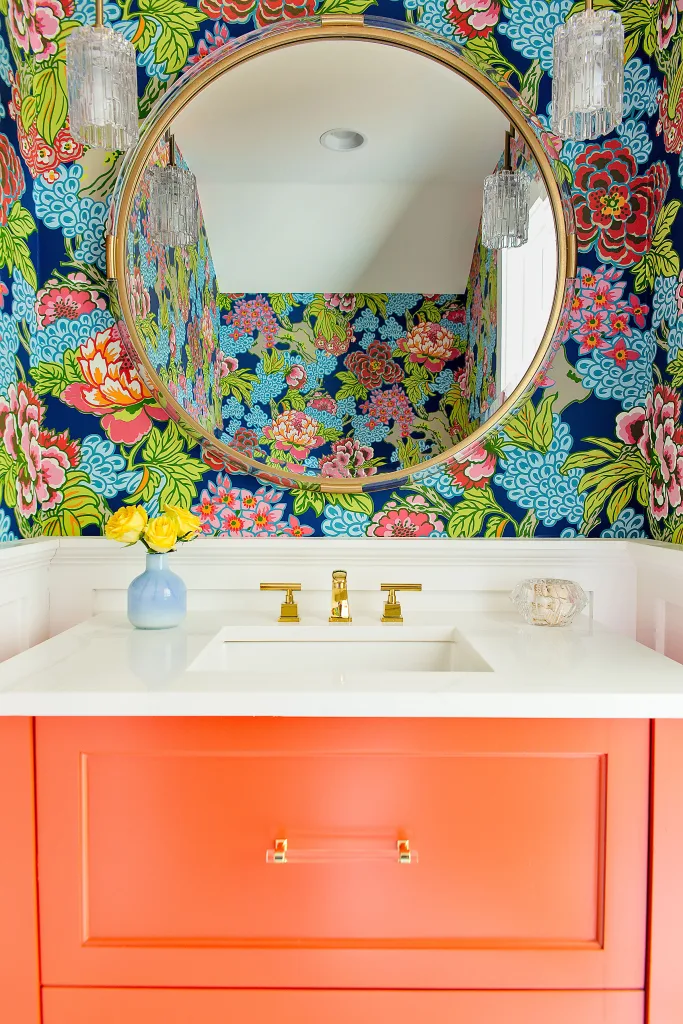
With cabinets in a bathroom, there are so many opportunities to go bold and make that impact you crave. Powder baths and laundry rooms are especially fun places to work with color on cabinets because their small area can make a big splash.
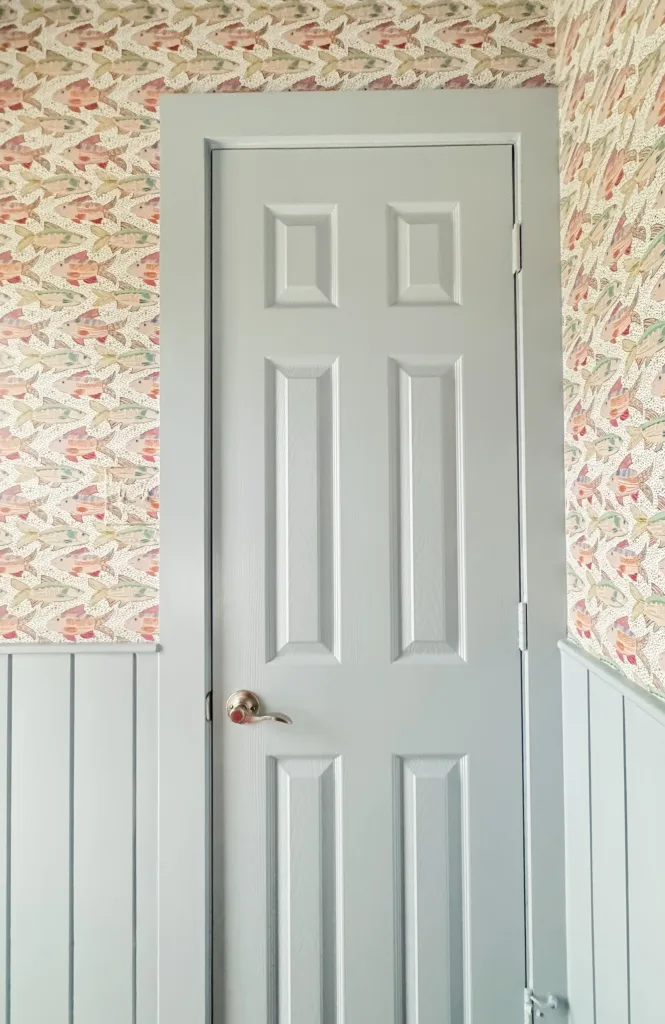
Doors & Door Trim
If you want to add some color to your living space, consider painting your interior doors and trim a different color than your neutral walls. This will allow you to experiment with rich, exciting, or bold colors without committing to using them on the walls. By keeping the walls white or neutral, your space will maintain a light and airy feel while the painted door becomes the focal point. We are witnessing this trend more and more, and we really appreciate the way it elevates the room by highlighting architectural features in the home. Also, you don’t have to go bold all the time. Even painting your doors and trim a medium taupe on a neutral wall can create the impact you are looking for, adding interest to the room. We’ve executed bold and more neutral options for our clients,
each with its unique charm.
You can also paint your exterior doors for some extra curb appeal!
